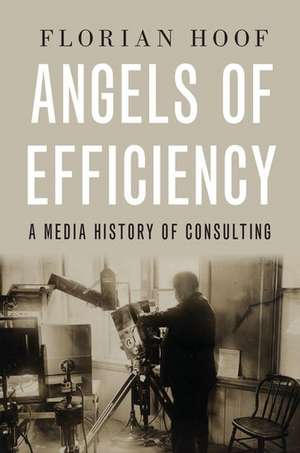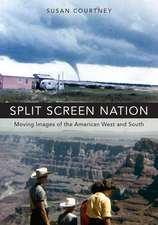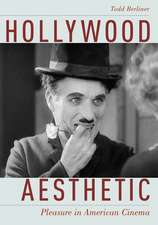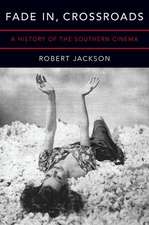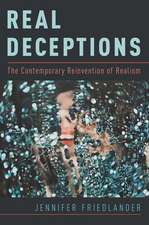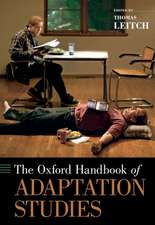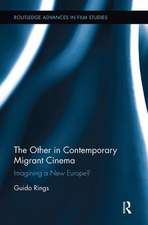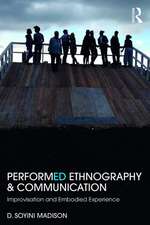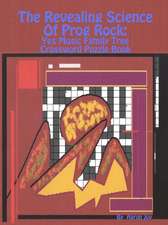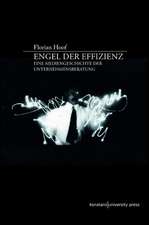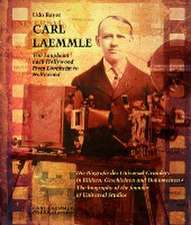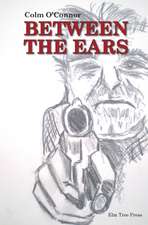Angels of Efficiency: A Media History of Consulting
Autor Florian Hoofen Limba Engleză Hardback – 4 iun 2020
| Toate formatele și edițiile | Preț | Express |
|---|---|---|
| Paperback (1) | 248.01 lei 10-16 zile | |
| Oxford University Press – 5 iun 2020 | 248.01 lei 10-16 zile | |
| Hardback (1) | 735.36 lei 31-37 zile | |
| Oxford University Press – 4 iun 2020 | 735.36 lei 31-37 zile |
Preț: 735.36 lei
Preț vechi: 988.93 lei
-26% Nou
Puncte Express: 1103
Preț estimativ în valută:
140.76€ • 152.94$ • 118.31£
140.76€ • 152.94$ • 118.31£
Carte tipărită la comandă
Livrare economică 10-16 aprilie
Preluare comenzi: 021 569.72.76
Specificații
ISBN-13: 9780190886363
ISBN-10: 0190886366
Pagini: 364
Ilustrații: 129 illus.
Dimensiuni: 241 x 159 x 30 mm
Greutate: 0.82 kg
Editura: Oxford University Press
Colecția OUP USA
Locul publicării:New York, United States
ISBN-10: 0190886366
Pagini: 364
Ilustrații: 129 illus.
Dimensiuni: 241 x 159 x 30 mm
Greutate: 0.82 kg
Editura: Oxford University Press
Colecția OUP USA
Locul publicării:New York, United States
Recenzii
...splendid concluding chapter...
Angels of Efficiency makes a fantastic contribution to the growing body of scholarship on the role played by film and visual media in modern systems of knowledge, governance and control. The book is far more than just a study of the Gilbreths or even of consulting films more widely. It offers a compelling case for the agency of visual media in shaping forms of knowledge, while showing how techniques of visualisation developed around 1900 anticipated the cybernetic turn of the post-WWII period.
This incisive volume demonstrates how the business of consulting harks back to the audiovisual motion studies of Lillian and Frank Gilbreth. Hoof unfolds a media historyfromergonomics,proto-cybernetics,and control interfacesto the flip charts, graphs, and slide decks of roving advisors today
Charting the reciprocal emergence of corporate consulting and a series of visualization techniques-including graphs, charts, tables, photographs, and motion pictures-between 1880 and 1920, Hoof definitively demonstrates how these visual media were not merely new forms of communication, but new forms of knowledge that actively shaped corporate strategy and practice. Angels of Efficiency provides an insightful portrait of modernity's visual culture of useful images, but it also brilliantly fuses film and media studies with economic history to make a powerful argument for the mutually constitutive relationship between media and discipline.
Angels of Efficiency makes a fantastic contribution to the growing body of scholarship on the role played by film and visual media in modern systems of knowledge, governance and control. The book is far more than just a study of the Gilbreths or even of consulting films more widely. It offers a compelling case for the agency of visual media in shaping forms of knowledge, while showing how techniques of visualisation developed around 1900 anticipated the cybernetic turn of the post-WWII period.
This incisive volume demonstrates how the business of consulting harks back to the audiovisual motion studies of Lillian and Frank Gilbreth. Hoof unfolds a media historyfromergonomics,proto-cybernetics,and control interfacesto the flip charts, graphs, and slide decks of roving advisors today
Charting the reciprocal emergence of corporate consulting and a series of visualization techniques-including graphs, charts, tables, photographs, and motion pictures-between 1880 and 1920, Hoof definitively demonstrates how these visual media were not merely new forms of communication, but new forms of knowledge that actively shaped corporate strategy and practice. Angels of Efficiency provides an insightful portrait of modernity's visual culture of useful images, but it also brilliantly fuses film and media studies with economic history to make a powerful argument for the mutually constitutive relationship between media and discipline.
Notă biografică
Florian Hoof is Research Assistant Professor of Media Studies at the Institute for Advanced Study on the Media Cultures of Computer Simulation, University of Lüneburg.
